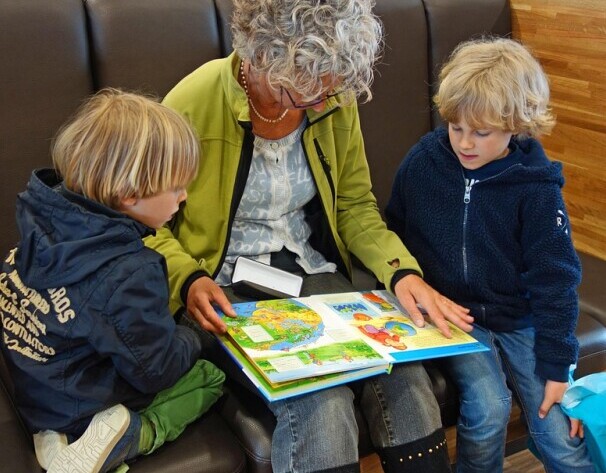Language development milestones are those cool checkpoints kids hit as they grow and learn to communicate. Each milestone marks a step in their journey to understanding and using language effectively.
Keeping an eye on these milestones matters because they give insights into a child’s progress and help catch any delays early on. Catching issues early means getting support sooner, which can make a big difference in a child’s communication skills down the line.LEARN MORE HOW WORK FROM HOME
Kids usually follow a general pattern when it comes to language skills, moving from babbling as babies to holding entire conversations as they get older. This progression varies a bit with each child, but certain ages typically align with specific milestones. Understanding these can help parents and caregivers support a child’s language journey effectively.

Early Language Milestones (Birth to 2 Years)
From birth to their second birthday, kids go through a whirlwind of language learning. It starts with tiny sounds and gestures that might look like random babbling but are actually the building blocks of language.
At first, babies communicate with coos, cries, and giggles. Around six months, you might notice more distinct babbling, with repetition of basic sounds like ‘ba-ba’ or ‘da-da,’ which are exciting first steps towards speech.
Sometime in their first year, babies typically say their first words. It could be ‘mama’ or ‘dada,’ but beyond specific words, they start understanding way more than they can speak. They might even respond to simple requests like ‘wave bye-bye.’
The role of parents in these early stages is huge. Engaging with kids through talking, singing, and reading can boost their language skills. Even simple games like peek-a-boo or naming objects help kids link words with meanings. Interactions are key, so talking to your baby often and encouraging their attempts at speech can really support their development.
Preschool Language Growth (2 to 5 Years)

During the preschool years, kids’ language skills take off in a big way. The vocabulary boom is one of the most noticeable changes. Little ones start using and recognizing hundreds of words and not just simple nouns anymore.
In these years, full sentences start to form. Complete thoughts come through with rich expression. Kids begin crafting pretty impressive sentences and sometimes even surprise you with their conversation skills.
Storytelling becomes a big deal too. With a growing vocabulary and better sentence structure, kids can recount events, real or imagined, in detail. Encourage this by reading together or asking them to share their own stories.
Speech clarity really improves too. Mispronunciations might happen, but that’s all part of learning. Be patient and, if necessary, gently guide them. If concerns about clarity persist, checking in with a speech therapist isn’t a bad idea.
Beyond words, kids start picking up on social cues in conversations. They learn about tone, volume, and taking turns in discussions. This skill sets them up for more complex interactions as they grow.
Language Skills in School-Aged Children (6 Years and Beyond)
As kids enter school, language skills continue to flourish. Reading and writing come to the forefront, with children transitioning from understanding words to piecing them together to make sense of whole sentences and paragraphs. This is where literacy skills become super important, and supporting them at home with extra reading material is a big win.
Grammatical accuracy increases during these years, with kids learning to tweak their sentence structures and pick up on more complex rules of language. They even start playing around with different sentence types and styles in their writing.
Peer interaction becomes crucial, offering opportunities to refine language skills in relatable settings. Kids exchange ideas, discuss different views, and learn how to adjust their language for different audiences and contexts.
While most children thrive in this period, some might show signs of language delays. It’s helpful for parents to keep an eye out for struggles with language comprehension or unusual speech patterns. Professional guidance from speech therapists or educators can make a huge difference in bridging any gaps and supporting children on their language journey.
